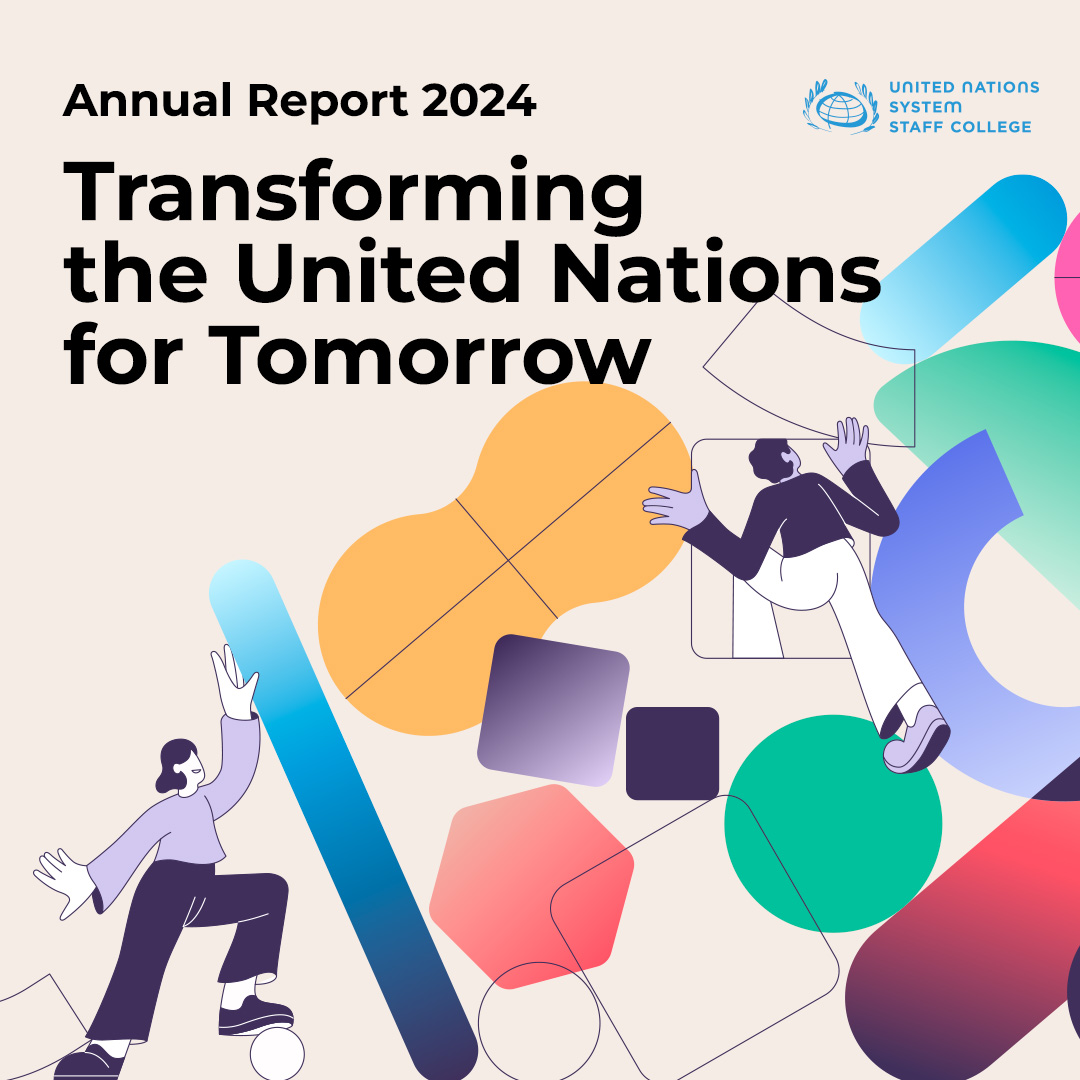


For UN 2.0 to become a reality, the United Nations must evolve—and that starts with people changing their behaviours. UNSSC’s Change Management Clinics are hands-on learning programmes that provide the essential foundation for the behavioural shifts needed to shape the United Nations of the future.
In 2024, UNSSC facilitated a five-month interactive change clinic designed for six teams from the UN Secretariat. The clinic aimed to address specific change management challenges such as anti-racism, strategic workforce management, and performance management.
The programme focused on using behavioural science and change management principles to address various challenges. All six teams recognized the importance of thoroughly understanding their change challenges before rushing to solutions. Each team made measurable progress and appreciated the value of applying behavioural science principles to design higher-quality solutions and noted the efficiency gains from testing before implementation.

Senior Security Training Assistant, United Nations Department for Safety and Security (UNDSS) Secretariat
“Participating in this change clinic was transformative for my understanding of how to look at challenges. The practical guidance and tailored insights also empowered me to navigate challenges and seize meaningful opportunities with confidence.”
Conflict sensitivity involves raising awareness of conflict dynamics among UN entities that provide development and humanitarian assistance and support political processes. The goal is to minimize the risk that these activities might exacerbate conflict dynamics, thereby hindering countries' progress toward achieving the Sustainable Development Goals. A conflict-sensitive approach not only minimizes harm but also strengthens social cohesion and promotes sustainable peace.
In 2024, UNSSC continued to advance UN 2.0’s emphasis on behavioural science through learning initiatives on conflict sensitivity. By improving practitioners’ abilities to assess operational contexts and understand how interventions interact with local dynamics, they can adapt their approaches accordingly.
Our global and contextualized tailored conflict sensitivity training courses, both online and in-person, reached over 800 participants, reflecting a growing demand within the field. Additionally, UNSSC expanded in-person training efforts by conducting conflict sensitivity workshops in Burkina Faso, Mauritania, and Niger, where we trained more than 100 peace practitioners.
UNSSC is directly enhancing the capacity of UN personnel to integrate conflict sensitivity into their work. It also systematically maps and documents best practices across the UN system, allowing for the development of resources and tools tailored to real-world needs. This drives meaningful change in how the UN approaches conflict-sensitive programming.

UNHCR Shelter Cluster Coordinator, Sudan
“This course allowed me to explore the concepts of conflict sensitivity in greater depth, increasing my understanding of its components across the programmatic cycle. It also encouraged an open mindset and adaptability during programme implementation.”
In a world stretched thin by resource scarcity and facing the threats of global biodiversity loss and climate change, our lifestyle choices are putting the planet at risk. Sustainable living involves understanding how our decisions affect the environment and finding ways for everyone to live in a more responsible and lighter manner.
The My Sustainable Lifestyles Challenge is a unique, gamified initiative designed to bridge the intention–action gap in learning through the use of behavioural science. The challenge features weekly action tasks, micro-learning modules, games, quizzes, and positive reinforcement to guide participants on a journey of exploration of their daily habits and behaviours. It encourages the practice of sustainable choices and facilitates meaningful behaviour change.
By the end of 2024, over 3,500 participants had engaged with the challenge in four languages: English, French, Russian and Spanish. Not only did participants actively engage during the challenge, but they also shared their experiences widely on social media, highlighting the positive impact the challenge had on their lifestyle choices.

MSc Student, Université Abou Moumoni, Niger
“Over the past six weeks, I have deepened my understanding of sustainable living practices and how to contribute towards environmentally friendly and inclusive economies. Special congratulations to my team, “Les Pionniers Verts” for being recognized as champions for weeks 3,4,5, and 6. It has been an incredible journey of learning and collaboration, and I am excited to continue promoting sustainable solutions in my work and community.”